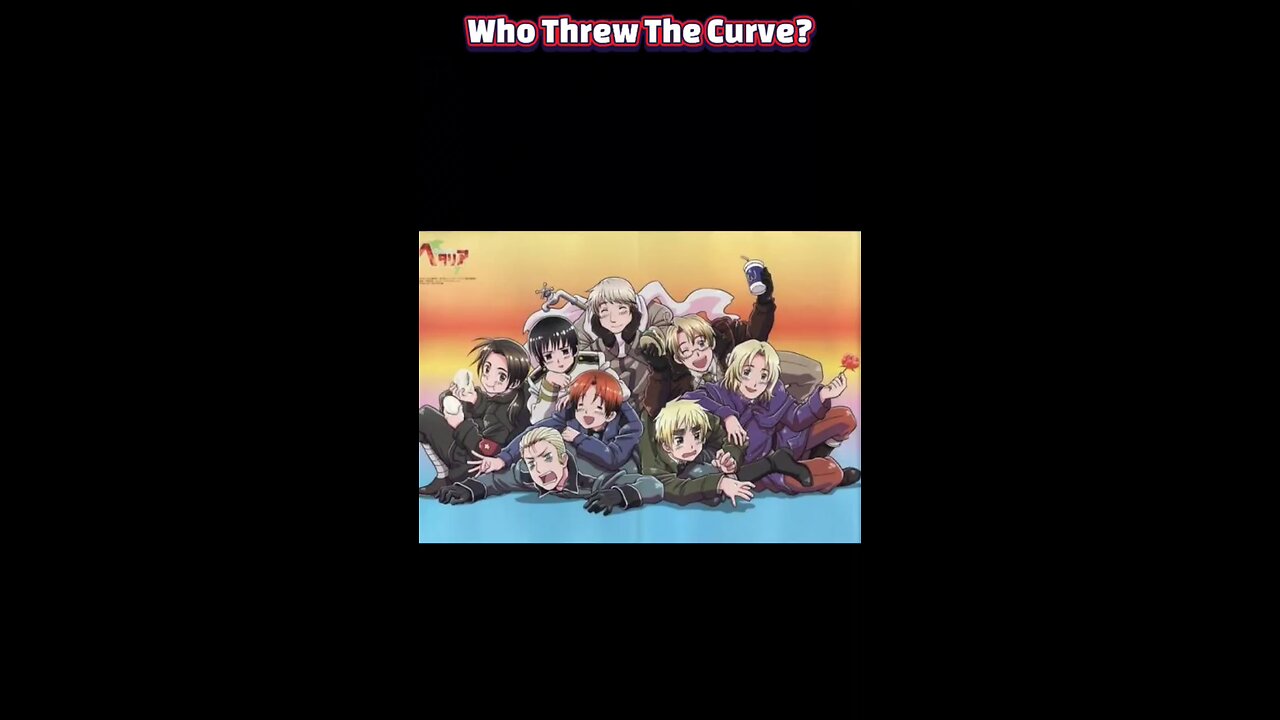Premium Only Content

What Happened to Hetalia? The Rise, Controversy & Comeback of Axis Powers
#Hetalia #AxisPowers #AnimeHistory #AnimeControversy #HetaliaWorldStars #AnimeFandom #AnimeCulture #OtakuLife #AnimeCommunity #AnimeThrowback
What Happened to Hetalia: Axis Powers
Hetalia: Axis Powers began as a Japanese webcomic by Hidekaz Himaruya, later adapted into a manga serialized from 2006 to 2013 and an anime produced by Studio Deen starting in 2009. The series stood out for its unusual premise: anthropomorphizing countries into human characters and using humor to portray historical, political, and cultural events. Initially focused on World War II through the lens of the Axis and Allied powers, it expanded to cover a wide range of historical periods and lighthearted cultural exchanges. Its short, comedic episodes and distinctive art style quickly attracted a passionate global fanbase.
However, Hetalia’s humor often leaned on national stereotypes, which sparked criticism and controversy. The most notable incident occurred in 2009, when the planned TV broadcast in Japan was canceled following backlash from South Korea over the portrayal of its character. Petitions and diplomatic statements condemned the depiction as offensive, leading the series to shift to online streaming instead. While the Korean character was largely removed from later adaptations, the controversy cemented Hetalia’s reputation as a polarizing work.
Despite the backlash, Hetalia maintained a loyal following through its mix of historical parody and character-driven comedy. Multiple anime seasons followed, Hetalia: World Series, The Beautiful World, The World Twinkle, along with a feature film, Paint It, White! The franchise also spawned merchandise, fan events, and a thriving online community. Yet, over time, its mainstream visibility waned, partly due to changing anime trends and the lingering stigma from its controversies.
In 2014, Himaruya launched Hetalia: World Stars, a continuation with updated designs and new storylines, serialized on Shueisha’s Shōnen Jump+ platform. This revival eventually received its own anime adaptation in 2021, signaling that while Hetalia was no longer the cultural flashpoint it once was, it still had enough fan support to warrant new content. The tone of World Stars was generally lighter, with less focus on politically sensitive material, reflecting lessons learned from earlier criticism.
Today, Hetalia occupies a unique place in anime history: a series that blended history, comedy, and cultural caricature in a way few others have attempted. While its popularity has cooled from its peak, it remains a “guilty pleasure” for many fans, beloved for its charm and humor, yet remembered for the controversies that shaped its trajectory. Its legacy is a reminder of how creative risks can both captivate audiences and provoke debate, leaving a lasting mark on pop culture.
-
 LIVE
LIVE
The Charlie Kirk Show
41 minutes agoShut It Down + End the ADL + The Baddest Bunny | Tim Pool | 10.1.2025
24,713 watching -
 LIVE
LIVE
Dr Disrespect
1 hour ago🔴LIVE - DR DISRESPECT - 10 WINS ON CONTROLLER - BO7 TOMORROW
4,394 watching -
 1:28:26
1:28:26
Steven Crowder
2 hours agoThe Left is Violent | Change My Mind
253K372 -
 1:01:40
1:01:40
the_edge_of_show
36 minutes agoBuilding the Transparency Economy with Benjamin Diggles from Constellation Network
1 -
 1:08:10
1:08:10
The Rubin Report
1 hour agoAOC Doesn’t Realize How Much She Hurt Dems Shutdown Chances by Saying This
10.6K13 -
 LIVE
LIVE
The Shannon Joy Show
1 hour agoTrojan Horse Trump Whores Out To Pfizer AGAIN W/ $70B Deal To mRNA - LIVE W/ Sasha Latypova!
385 watching -
 LIVE
LIVE
LFA TV
13 hours agoLIVE & BREAKING NEWS! | WEDNESDAY 10/1/25
4,609 watching -
 30:49
30:49
Rethinking the Dollar
1 hour agoMarkets Panic: Government Shutdown Sends Gold & Bitcoin Higher | Morning Check-In: Let's Talk...
92 -
 LIVE
LIVE
Trumpet Daily
1 hour agoTrumpet Daily LIVE | Oct. 1, 2025
453 watching -
 1:00:55
1:00:55
VINCE
3 hours agoSOMBRERO-GATE! | Episode 137 - 10/01/25
157K169